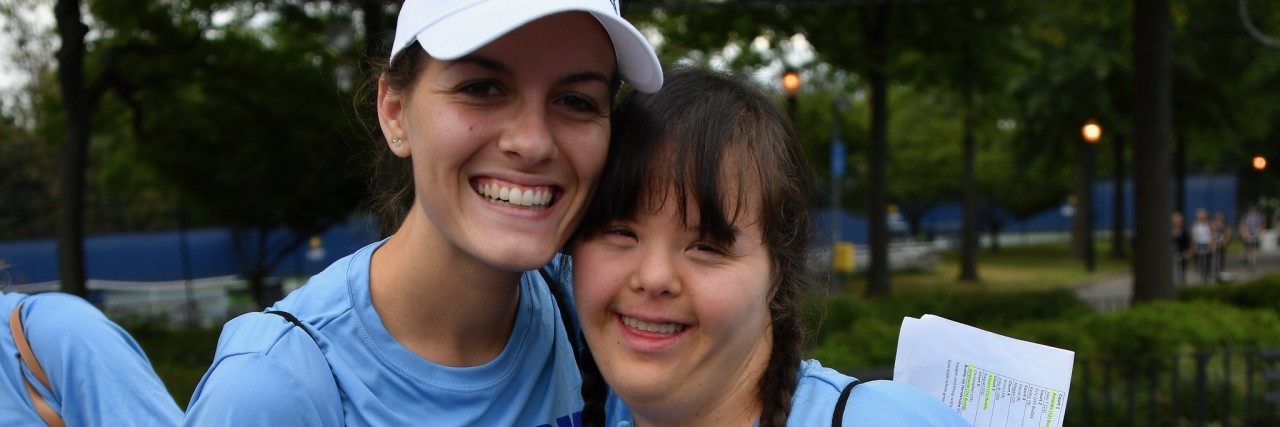Sarah and I have always been best friends, but we are also triplet siblings, along with our brother, Andrew. Sarah has Down syndrome and growing up, she was always just our sister, treated the same in almost every context. But as we have gotten older, I have started to accept that it’s OK to see Sarah’s differences, as it will guide her towards a more successful future. This was and is not an easy path for a sibling who has always viewed their sister as having no differences.
The story does not start out promising though. Throughout elementary school, I was embarrassed to say the words, “Down syndrome,” “special needs,” or “disability.” The words were not in my vocabulary. Sarah didn’t go to school with Andrew and I, so my answer to the question, “Where is your other triplet?” was always a challenging one. I often said that Andrew and I were just twins.
But aside from school, Sarah was just like Andrew and I, and my parents made that very clear. Sarah did the same activities, dance lessons, tennis lessons and Hebrew school. She joined in on playdates with my friends, as they were her friends too (and still are). Andrew and I held Sarah to a very high standard (and still do). If there was a sibling fight, Sarah got no special treatment, our parents instilled in us that we were all the same. Nonetheless, when it came to Sarah’s homework and why she was constantly going to tutoring, speech therapy and occupational therapy, mom always said, “Sarah might learn things a little slower than you and Andrew, but she will get there, I promise.”
As we got into middle and high school, the gap started to widen. Sarah would participate in private tennis lessons rather than join me in group tennis clinics; she became more involved in activities specifically for people with intellectual disabilities. I still saw Sarah as Sarah, my sister who is going to accomplish every milestone that Andrew and I accomplish, but maybe a little later in life.
It was not until college when I realized that Sarah’s milestones and accomplishments as we get older might be different than mine, in addition to taking a different trajectory. This was extremely difficult for me to grapple with because Sarah was the same as Andrew and I, right? So why did she not graduate with a high school diploma? Why is it so hard to find the right college program for her? Why can’t she have a clear path to achieving her dream as a preschool teacher?
What’s been helpful in understanding that Sarah’s milestones are going to be different, has been focusing on her differences. If you are the parent, sibling or teacher of a child with a disability who is currently elementary school, you might gasp at a comment like this. And not too long ago, I was right there with you — Sarah was not different and she needed to be included in all extracurricular activities. However, taking a step back to recognize her differences has helped me become a better sister. Rather than getting frustrated with certain behaviors that might not be age appropriate for a 22 year old, I think about the type of support she might need for that specific behavior.
Of course, I still want her to experience college, to move away from home, and to live on her own, but my family and I are starting to think about her differences as the supports needed to get her to reach the milestones that are unique to Sarah.
I am beyond grateful for our inclusive upbringing, always thinking of Sarah as just another kid, but sometimes I wonder if I had been able to identify her differences more, maybe it would have made this transition time (out of high school) a little easier on me and on her. Nonetheless, I know that from here we have whole lot of recognizing and of course celebrating Sarah’s differences to come.

